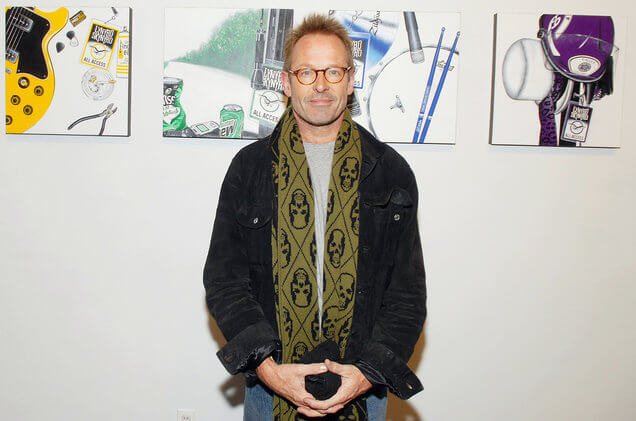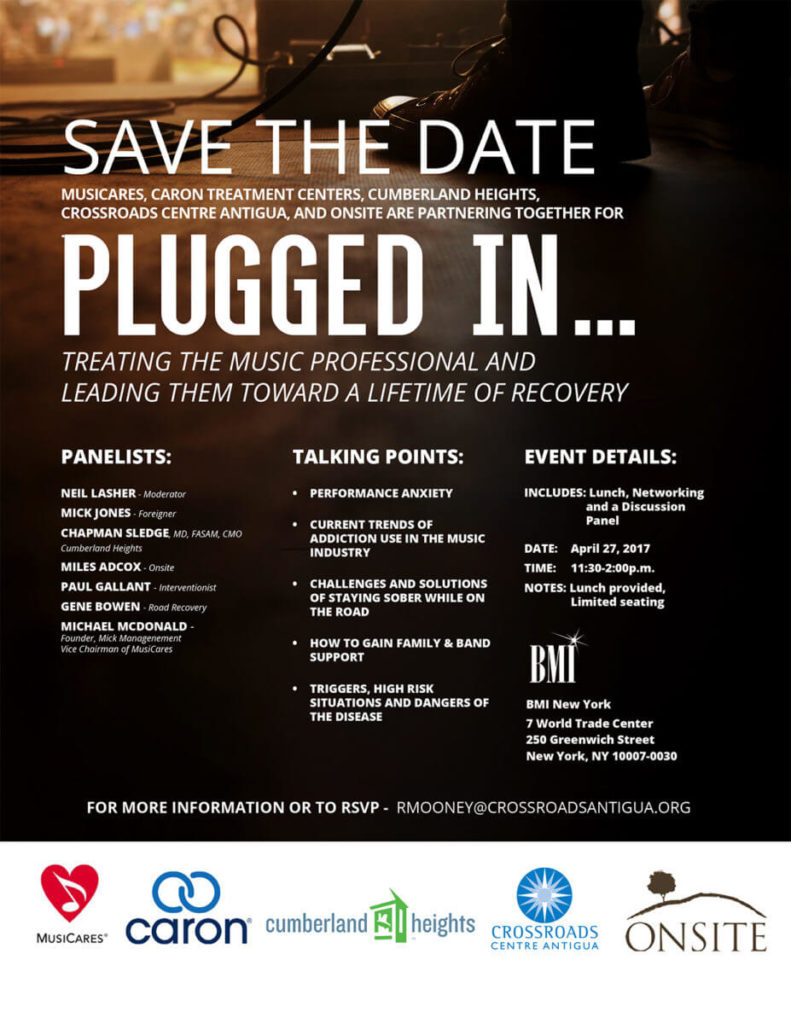04/21/2017 Original Article by

By: Ray Tamarra/Getty Images
Bad Company drummer Simon Kirke photographed at Grant Gallery on Jan. 19, 2006 in New York City.
Bad Company drummer Simon Kirke will join a MusiCares panel dedicated to treating artists and other music professionals who’ve become addicted to drugs and alcohol. Kirke, who works closely with Road Recovery, an organization that uses musicians to mentor teens battling addiction, will take part in “Plugged In…Treating The Music Professional and Leading Them Toward a Lifetime of Recovery.” The luncheon and discussion will take place beginning at 11:30 am on April 27 at the BMI/New York offices, located at 7 World Trade Center.
“We want managers, A&R people and musicians to come to this so that they can learn to recognize the signs of addiction so that they can act to help a fellow band member or an artist they’re working with before it gets bad,” says Neil Lasher, a consultant in promotions and artist relations at Sony/ATV Music Publishing and a certified interventionist, who will moderate the panel of intervention and recovery experts.
Those scheduled to take part include Dr. Chapman Sledge, the chief medical director of Cumberland Heights, a Nashville-based non-profit alcohol and drug treatment center; Miles Adcox, the CEO and owner of Onsite, a dependency treatment center that’s also located in Nashville; Paul Gallant, a Master’s level licensed professional counselor, Certified Intervention Professional and founder of Primary Recovery Services in Greenwich, Conn.; Gene Bowen the founder of Road Recovery and Gregg Allman’s former road manager; and MusiCares vice chairman Michael McDonald, the founder and CEO of Mick Management, which represents Maggie Rogers, Hamilton Leithauser and Sharon Van Etten.
Lasher, who has been in recovery for 30 years — and who, in 1997, played a leading role in establishing the MusiCares Safe Harbor Room (a sober backstage area at the Grammy Awards that is set up every year) — tells Billboard that, given the epidemic of opioid abuse and over-prescription in the United States, the panel is intended as a preventative measure.
According to the Centers for Disease Control and Prevent (CDC), the number of overdose deaths from opioids, including prescription opioids, has quadrupled since 1999 and claimed more than half a million people between 2000 and 2015. On April 21, 2016, Prince died from an accidental overdose of the opioid fentanyl, and Lasher says, “Of all my years going to 12-step meetings, I see more people with double-digit [years of] sobriety to their credit, [relapse] because of over-prescribed opioids.”
Although there is no evidence that the music industry has been more affected by opioid abuse than other business sectors, McDonald says musicians can be more susceptible to addiction in general because “they are often tortured souls. They often don’t fit into the 9-to-5 mold, and they like emotional unrest and the highs and lows,” which they can channel into their art.
When it comes to intervention and recovery, working with musical artists also tends to be more complex, says Gallant. “Normally, when I’m coordinating an intervention, I’ll talk to five people,” he explains. “With an artist, there could easily be a dozen: You’ve got family, the record company, management, the artist’s publicist and other band members and their family. And while some of those people genuinely care about the guy, others see him as a paycheck… that can get challenging in terms of clinical recommendations versus business obligations.”
The panel and luncheon are free, but seating is limited. See the flyer below for additional information.











